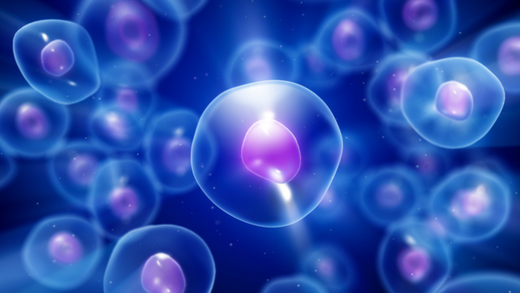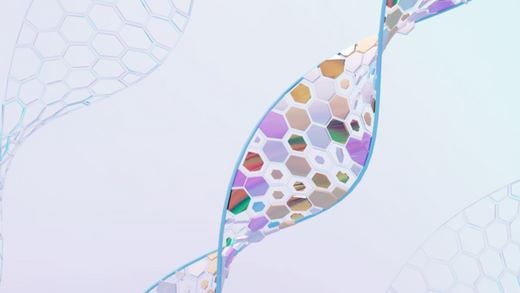Key Takeaways:
- Stem cells hold immense potential in regenerative medicine, offering possibilities for slowing or reversing ageing processes.
- Research shows stem cells can repair damaged tissues, enhance skin health, and reduce the impact of chronic diseases.
- Ethical considerations and cutting-edge therapies like induced pluripotent stem cells (iPSCs) are shaping the future of anti-ageing science.
Did you know that your body naturally harbours a repair system that could one day slow ageing? Stem cells, the body’s building blocks, have the unique ability to transform into specialised cells to replace damaged tissues. Scientists are now exploring how stem cell therapies could extend not only lifespan but also healthspan—the years spent in optimal health. Ready to dive into the science of stem cells and their potential to combat ageing?
How Stem Cells Combat Ageing
What if your body held the key to repairing itself and slowing down the ageing process? Stem cells, often called the building blocks of life, play a crucial role in maintaining your health by replenishing damaged or ageing tissues. While their natural ability diminishes with age, advancements in stem cell therapies are uncovering ways to harness their potential for anti-ageing and longevity. Let’s dive into what makes stem cells so powerful.

What Are Stem Cells?
Stem cells are undifferentiated cells capable of developing into various cell types, such as skin, muscle, or nerve cells. They serve as the body’s internal repair system, replenishing tissues and maintaining homeostasis. Stem cells are categorised into:
- Embryonic Stem Cells (ESCs): Found in early-stage embryos and can differentiate into any cell type.
- Adult Stem Cells: Reside in tissues like bone marrow or skin and aid in repair but have limited differentiation potential.
- Induced Pluripotent Stem Cells (iPSCs): Created by reprogramming adult cells back into a stem-like state, avoiding ethical concerns tied to ESCs (R).
Stem Cells and Cellular Repair
As you age, your body’s natural repair processes slow, leading to cellular damage and reduced organ function. Stem cells counter this by regenerating tissues:
- Skin Health: Stem cell-based treatments can restore collagen production, improve elasticity, and reduce wrinkles (R).
- Muscle Regeneration: Stem cells replenish muscle cells, improving strength and reducing sarcopenia, a condition linked to ageing (R).
- Neuroprotection: Stem cell therapies hold promise for repairing nerve damage, potentially delaying conditions like Alzheimer’s (R).
The Science Behind Stem Cells and Longevity
Have you ever wondered why your body seems to heal faster when you’re younger? That’s the work of stem cells at their peak performance. As you age, these repair systems slow down, leading to signs of ageing and chronic disease. Fortunately, research shows that enhancing stem cell activity can delay ageing by maintaining cellular turnover and reducing oxidative stress. Let’s explore how these remarkable cells support healthy ageing.
How Do Stem Cells Delay Ageing?
Stem cells function by maintaining cellular turnover, replacing old or damaged cells. Key mechanisms include:
- Reducing Oxidative Stress: Stem cells combat the accumulation of free radicals that damage DNA and accelerate ageing (R).
- Promoting Mitochondrial Health: Healthy stem cells boost energy production, vital for slowing age-related decline (R).

Cutting-Edge Therapies
Recent advancements in stem cell technology are reshaping the future of anti-ageing therapies:
- Mesenchymal Stem Cells (MSCs): Found in bone marrow, these cells reduce inflammation and improve tissue repair (R).
- iPSCs: Offering a personalised approach, iPSCs can generate patient-specific cells for targeted treatments without immune rejection (R).
Applications of Stem Cells in Anti-Ageing Medicine
Imagine a future where regenerating damaged skin or preventing age-related diseases is as simple as harnessing the power of your own cells. Stem cell-based treatments are already making waves in skincare and chronic disease prevention, offering a glimpse into how this technology can improve healthspan and vitality. Let’s look at the exciting ways stem cells are being used in anti-ageing medicine today.
Rejuvenating Skin with Stem Cells
Stem cell-based skincare is becoming a cornerstone of anti-ageing treatments:
- Topical Applications: Products infused with stem cell-derived factors stimulate collagen synthesis.
- Injectable Therapies: Stem cells injected into the dermis enhance skin texture and reduce wrinkles (R).
Stem Cells for Chronic Disease Prevention
Stem cell therapies aim to prevent or manage age-related diseases:
- Cardiovascular Health: They improve blood vessel repair, reducing the risk of heart disease (R).
- Metabolic Disorders: Stem cells enhance insulin sensitivity, potentially preventing diabetes (R).
Challenges and Ethical Considerations
While stem cells offer incredible promise, their use isn’t without controversy or challenges. Ethical concerns surrounding embryonic stem cells have spurred the development of alternatives like iPSCs, which bypass many ethical dilemmas. At the same time, ensuring the safety and efficacy of stem cell therapies remains a top priority for researchers. Let’s uncover the hurdles and opportunities in this rapidly advancing field.
Ethical Implications
The use of embryonic stem cells raises ethical concerns. However, iPSCs and adult stem cells provide alternatives without ethical dilemmas.
Safety and Efficacy
Stem cell treatments, while promising, are still in experimental stages. Issues like cell rejection and the risk of tumours remain areas of active research (R).
How You Can Benefit from Stem Cell Research Today
Even if stem cell therapies aren’t widely accessible yet, there are simple steps you can take to support your body’s natural repair systems. From following an anti-inflammatory diet to prioritising regular exercise and quality sleep, these habits can enhance your stem cell activity and promote cellular health. Ready to start incorporating these changes into your life? Let’s explore how you can benefit from the science of stem cells right now.
Diet and Lifestyle to Support Stem Cell Health
Certain lifestyle changes can enhance your body’s natural stem cell activity:
- Anti-Inflammatory Diet: Foods rich in omega-3s and antioxidants promote stem cell function (R).
- Regular Exercise: Physical activity stimulates the release of muscle-repairing stem cells (R).
- Quality Sleep: Deep sleep supports cellular repair and regeneration (R).

Future of Stem Cells in Longevity Science
What does the future of ageing look like? With advancements in gene editing, bioengineered cells, and innovative therapies, the possibilities are endless. Stem cell research is paving the way for treatments that could repair tissues, reverse age-related damage, and extend healthspan in ways once thought impossible. Let’s take a closer look at the cutting-edge breakthroughs shaping the future of longevity science.
Emerging Therapies
Gene editing technologies like CRISPR and bioengineered stem cells are being explored to enhance the efficacy of anti-ageing therapies. Clinical trials, such as those investigating MSCs for arthritis and Parkinson’s disease, are paving the way for future breakthroughs (R).
Conclusion
Stem cells offer a promising pathway to slow ageing and enhance overall health. While research continues to advance, lifestyle changes and emerging therapies already provide avenues to support longevity.
Curious about more about the latest in stem cell research? Read our blog here.





